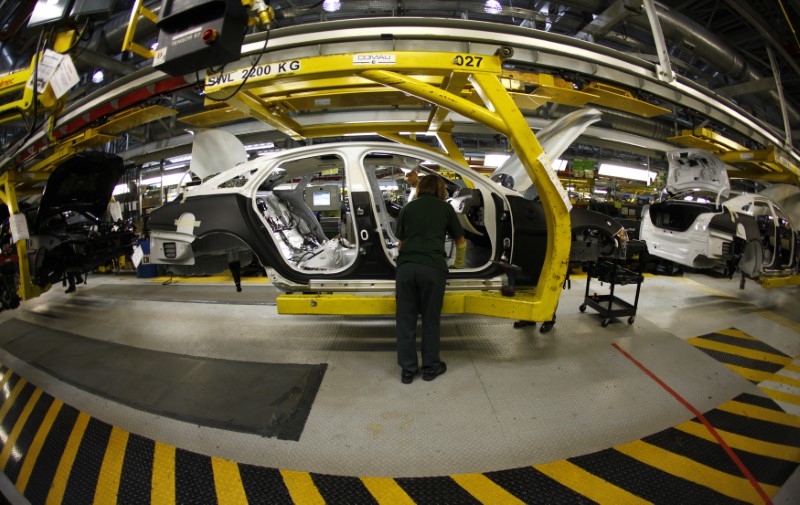Growth in value employees create per hour remains weak

LONDON (Reuters) — British productivity struggled to break out of its post-financial crisis rut in the three months after June's vote to leave the European Union, highlighting the long-term economic challenges ahead, official figures showed on Friday.
Robust growth in productivity — or how much value employees create during each hour at work — is key to boosting long-run living standards, but has been particularly weak in Britain since the 2008-09 recession.
Bank of England chief economist Andy Haldane said on Thursday that productivity at more than three-quarters of British companies was stagnant, and finance minister Philip Hammond pledged in November to spend 23 billion pounds ($28 billion) tackling the problem.
Figures from the Office for National Statistics on Friday showed that hourly output in the three months to the end of September was only 0.4 per cent higher than the previous year, far below its pre-crisis average of just over two per cent.
Partly, this reflects a slump at the end of 2015 when productivity fell 0.9 per cent. Growth in the first nine months of 2016 was better, with quarterly rates of 0.4-0.5 per cent.
Nonetheless, most economists see challenges ahead as Britain prepares to leave the EU.
"The UK has a lot of catching up to do," said Howard Archer, chief UK economist at IHS Markit. "While the 2016 quarter-on-quarter increases in productivity ... indicate that there has recently been some much-needed improvement, it is notable that they follow a considerable period of poor productivity."
The ONS said British productivity stood 15.5 per cent below where it would have been if productivity growth had returned to its pre-crisis trend.
Explanations for weak productivity vary. Highly productive sectors such as financial services and oil and gas contracted after the financial crisis and there has been rapid growth in low-skilled, low-paid jobs.
Haldane on Thursday cited long-standing concerns about low public infrastructure investment and a patchy education system that has produced weak results for poorer and less able pupils.
While Britain's economy has grown strongly since June's vote to leave the European Union, most economists think future restrictions on migration and the probable increase in bureaucracy involved in trading with Europe will harm productivity growth.
"As we leave the EU, the country needs to work harder than ever to demonstrate our doors remain open to the world," said Yael Selfin, an economist at accountants KPMG.
June's Brexit vote has led to a fall of nearly 20 per cent in the value of the pound, which businesses said this week was pushing prices up by the most in five years.
Friday's data suggested that underlying inflation pressures — which are not directly caused by the weak pound, and concern the BoE more — are also rising at their fastest rate in nearly three years.
Unit labour cost growth, a measure of how much employers pay staff for a given amount of output, grew by an annual 2.3 per cent, the most since the last three months of 2013.




